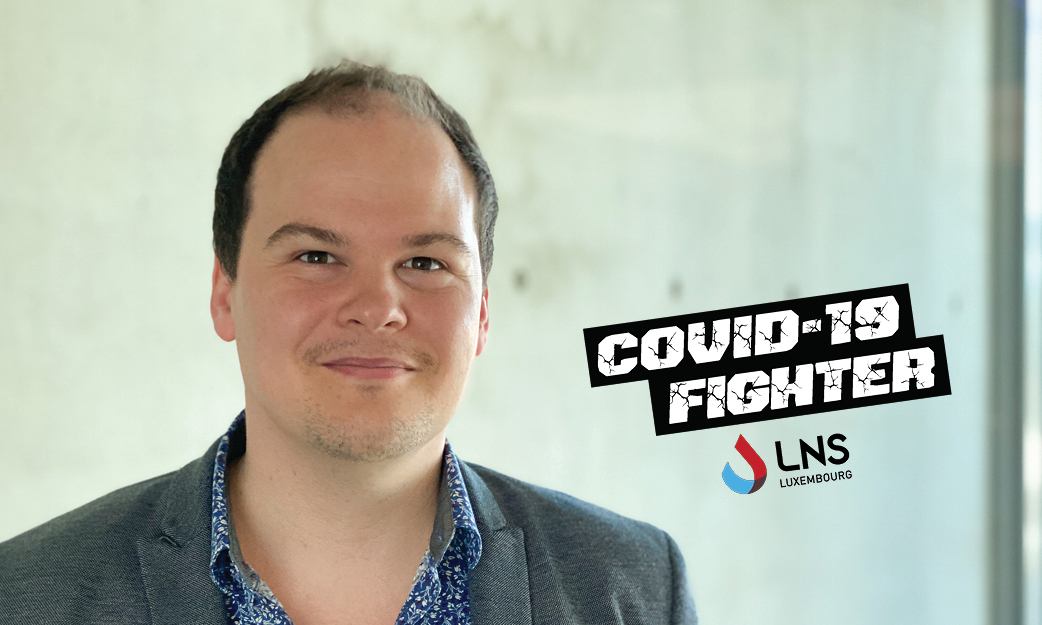- The Laboratory
- Organization
- Departments
- Jobs
- Analysis book
- Contact
- News
- Publications
- Download



I’m a clinical biologist in the Medical Biology Department. Our activity was impacted by the deployment of the Discovery clinical study, initiated by INSERM Lyon together with the Centre Hospitalier de Luxembourg (CHL) and the Robert Schumann Hospitals (HRS).
Discovery involves dosing two drugs – lopinavir/r and hydroxychloroquine – which are candidates for the treatment of Covis-19. The dosing techniques had to be developed swiftly, so as to allow therapeutic follow-up in patients treated for SARS-CoV-2 infections. In the second phase, we were asked to validate the analytical performance of the Roche SARS-CoV-2 serological kit before its market entry in Luxembourg. In particular, we focused on assessing sensitivity, specificity, validity and accuracy with the assistance of the Microbiology Department, which made its serum bank available for the occasion.
At the same time, most of our routine activities had to be kept up in order to avoid subcontracting them and thus lengthening the time required to deliver results, which would have been detrimental to patient care.
As a clinical biologist, I take medical responsibility for the quality and reliability of the results of medical biology analyses, whether pre-analytical, analytical or post-analytical. The pandemic reduced the number of staff on all sides, so I also made every effort to support the technical team as much as possible. I was directly involved in the development of the mass spectrometry quantitative analysis methods mentioned above, as well as in the technical and biological evaluation of the Roche SARS-CoV-2 kit . It was a team effort, and I would like to thank everyone in the Department and at the LNS for their support and collaboration.
We collaborated with various players involved at the CHL and HRS prior to the deployment of the Discovery clinical trial, in particular to define the peri-analytical and logistical requirements. We also shared the Roche kit evaluation data with the Microbiology Department, in particular to make it possible to compare performance between the different kits under assessment. This study also brought us in contact with the team from the Clinical Pharmacology and Toxicology Department of the University Hospital Centre in Nancy, who shared their experience with us. I would be glad to take this great scientific collaboration further.
Much like the LNS microbiology Sequencing Platform, we had to deal with a breakdown of our mass spectrometer, which is used daily to pharmacologically monitor neurotropes/psychotropic drugs, among other things, and also for toxicological screening.
Developing the processes related to hydroxychloroquine was also a complex endeavour, and not easy to optimize.
Unfortunately, the Discovery clinical trial did not recruit as many patients as expected. However, our work has not been in vain, and it will help us to carry out pharmacological therapeutic monitoring at the LNS for some 20 antiretroviral drugs, and also for hydroxychloroquine (particularly in treating certain connective tissue diseases), which is currently not done of in Luxembourg.